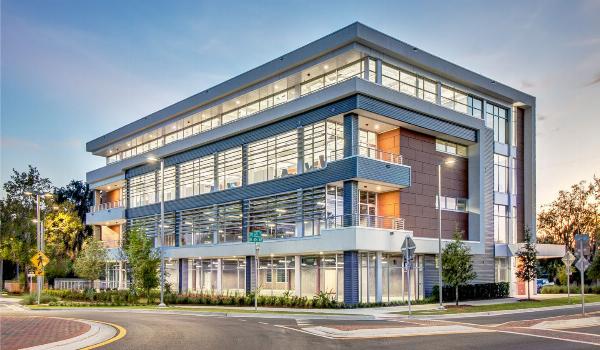 Guaranteed SEO Boost: Triple Your Rankings with Backlinks starting at 5$
Guaranteed SEO Boost: Triple Your Rankings with Backlinks starting at 5$
Commercial real estate (CRE
Written by emily » Updated on: October 05th, 2024
Commercial real estate (CRE

Commercial real estate (CRE)refers to properties used for business purposes rather than residential living. This sector includes office buildings, retail spaces, industrial warehouses, and multifamily apartments. Unlike residential real estate, which typically involves buying a home for personal use, CRE is often acquired for investment or business operations.
Types of Commercial Real Estate
Office Spaces
Office buildings are categorized into Class A, B, and C. Class A properties are typically high-quality, modern buildings in prime locations. Class B properties are older but still in good condition, and Class C properties often require significant renovations.
Retail Properties
Retail spaces include shopping centers, malls, and standalone stores. These properties can range from small boutique shops to large retail complexes. The location and visibility are crucial factors for retail success.
Industrial Properties
Industrial real estate encompasses warehouses, manufacturing plants, and distribution centers. These properties are essential for logistics and supply chain operations. They often require specific design features like loading docks and high-clearance spaces.
Multifamily Properties
Multifamily real estate includes apartment buildings and other residential properties with multiple units. While often considered residential, multifamily properties are commercial when they are operated as income-generating assets.
Investment Strategies in Commercial Real Estate
Direct Ownership
Direct ownership involves purchasing a property and managing it yourself or through a property management company. This strategy offers control over the asset but requires active involvement in property management and maintenance.
Real Estate Investment Trusts (REITs)
REITs allow investors to buy shares in a company that owns or manages commercial properties. This approach offers liquidity and diversification without the need for direct property management.
Real Estate Crowdfunding
Crowdfunding platforms enable investors to pool resources to invest in commercial real estate projects. This method provides access to larger investments with potentially higher returns but comes with varying degrees of risk.
Property Flipping
Flipping involves purchasing a property, improving it, and selling it at a profit. This strategy requires significant capital and expertise in property renovations and market analysis.
Current Trends in Commercial Real Estate
Remote Work Impact
The rise of remote work has influenced the demand for office spaces. Many companies are downsizing their office footprints or adopting hybrid work models, which has led to shifts in office space requirements.
E-commerce Growth
The growth of e-commerce has increased the demand for industrial spaces, particularly warehouses and distribution centers. This trend is driving investment in logistics and supply chain infrastructure.
Sustainability and Green Building
There is a growing emphasis on sustainability in CRE. Green building certifications and energy-efficient features are becoming important factors for tenants and investors, leading to higher demand for environmentally-friendly properties.
Urban Revitalization
Many cities are focusing on revitalizing urban areas, which includes transforming older industrial or commercial properties into mixed-use developments. This trend often enhances property values and attracts new businesses and residents.
Challenges in Commercial Real Estate
Economic Fluctuations
CRE markets are sensitive to economic cycles. Economic downturns can impact property values and rental income, affecting investment returns.
Regulatory Changes
Changes in zoning laws, building codes, and environmental regulations can impact CRE investments. Staying informed about regulatory changes is crucial for successful property management and investment.
Market Saturation
In some regions, an oversupply of commercial properties can lead to increased competition and lower rental rates. Understanding local market conditions is essential for making informed investment decisions.
Conclusion
Commercial real estate offers diverse opportunities for investors and businesses. Understanding the different types of CRE, investment strategies, and current trends can help you navigate this complex and dynamic sector. Whether you're looking to invest directly, participate in REITs, or explore other avenues, staying informed and adaptable is key to success in commercial real estate.s.com/
Disclaimer:
We do not claim ownership of any content, links or images featured on this post unless explicitly stated. If you believe any content or images infringes on your copyright, please contact us immediately for removal ([email protected]). Please note that content published under our account may be sponsored or contributed by guest authors. We assume no responsibility for the accuracy or originality of such content. We hold no responsibilty of content and images published as ours is a publishers platform. Mail us for any query and we will remove that content/image immediately.
Copyright © 2024 IndiBlogHub.com. Hosted on Digital Ocean







